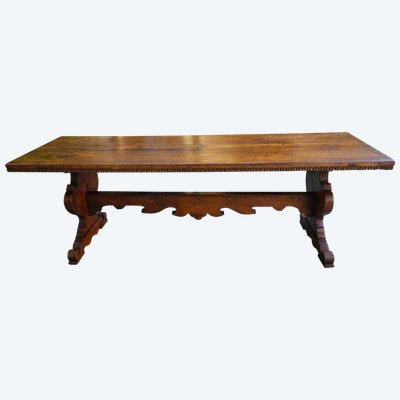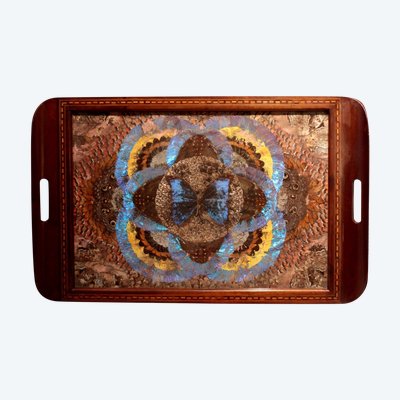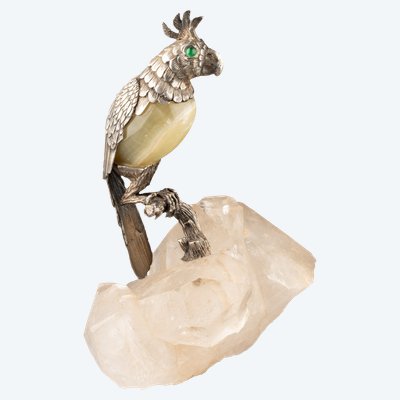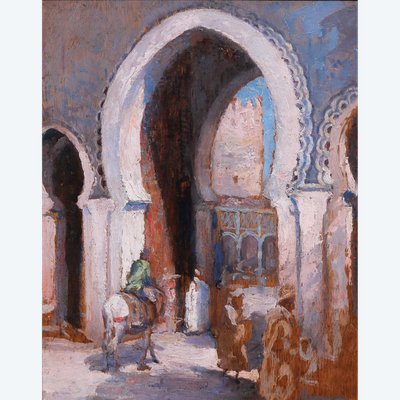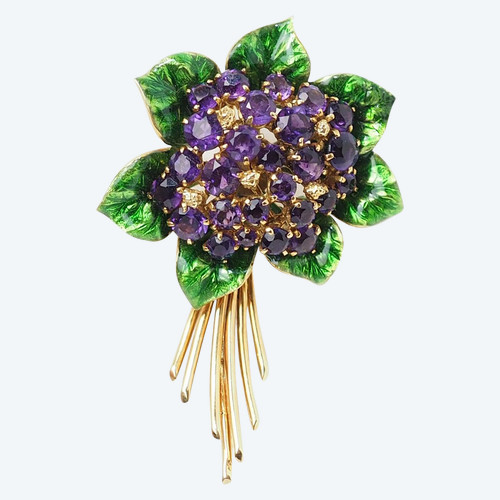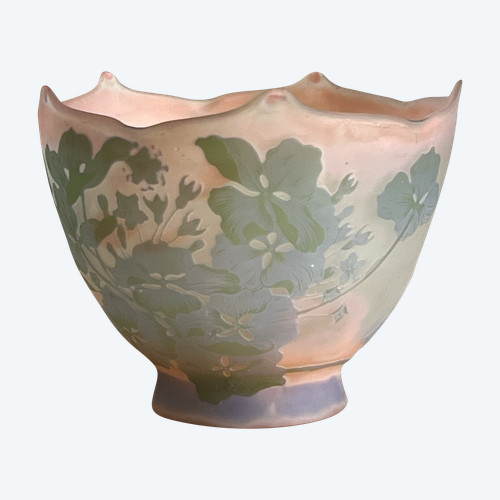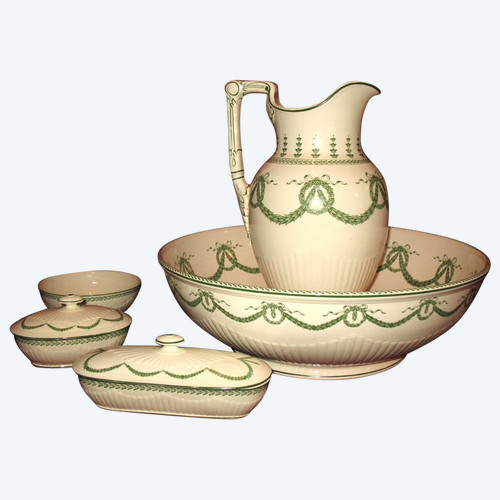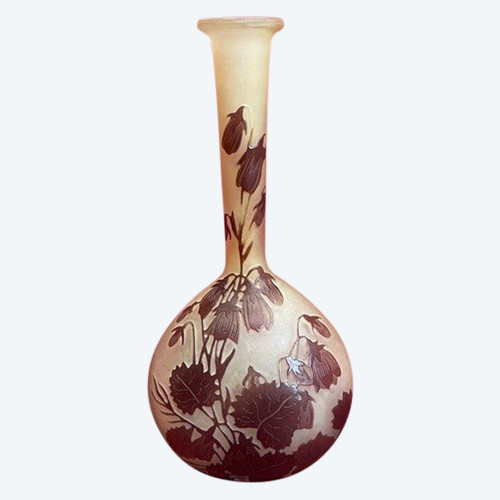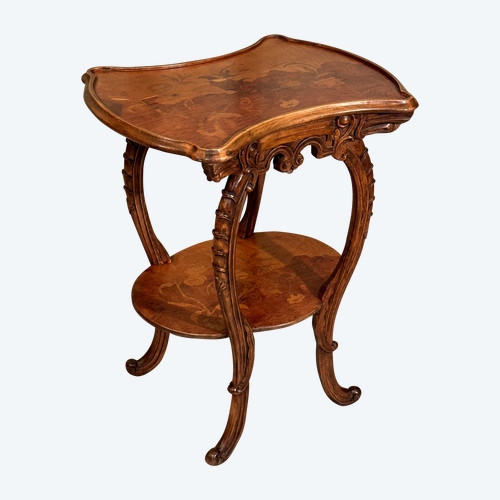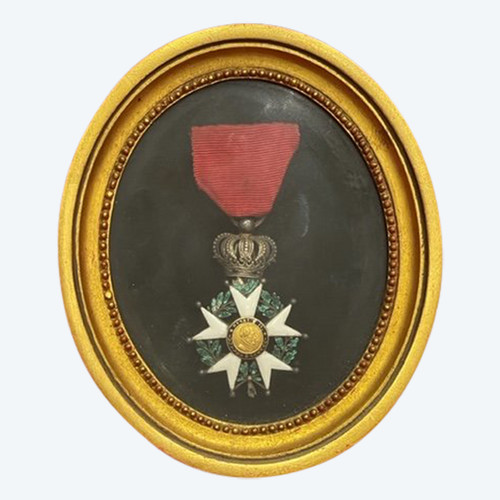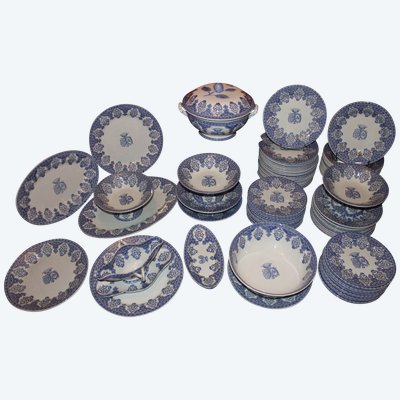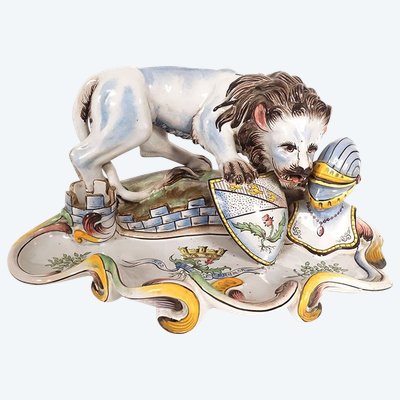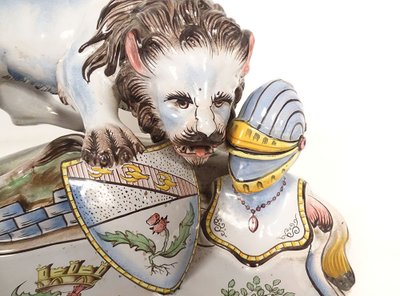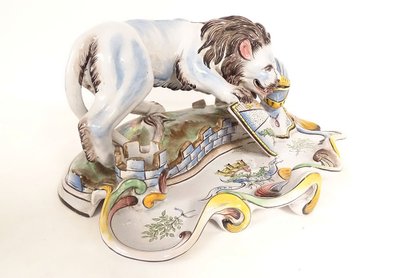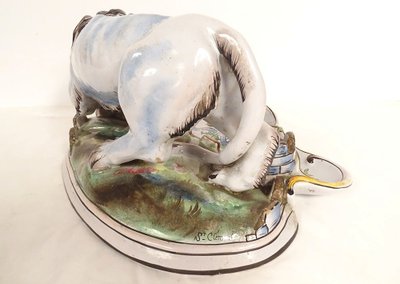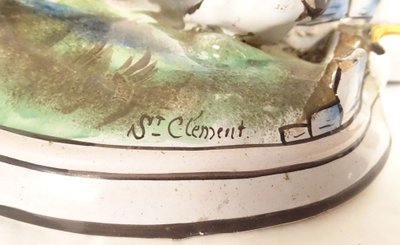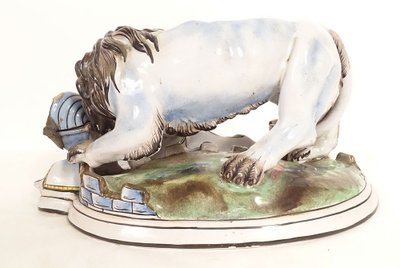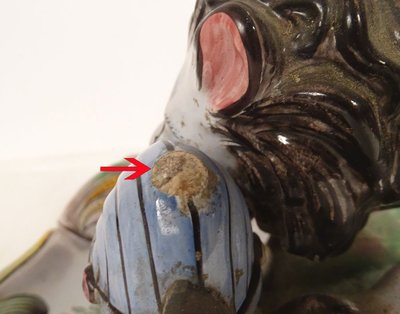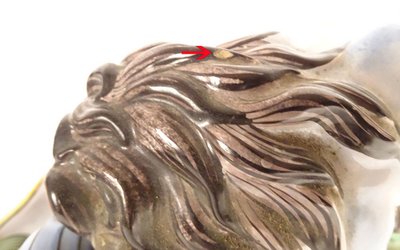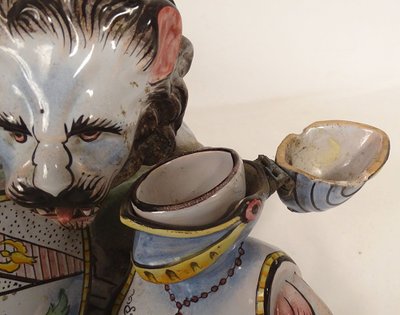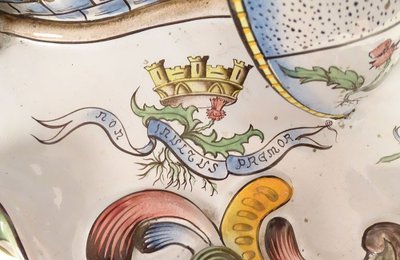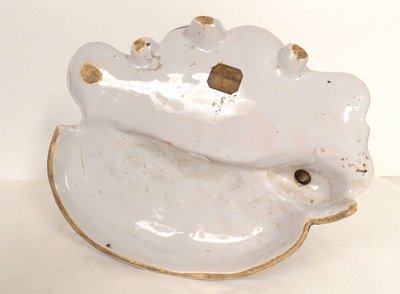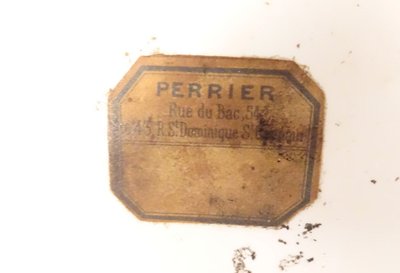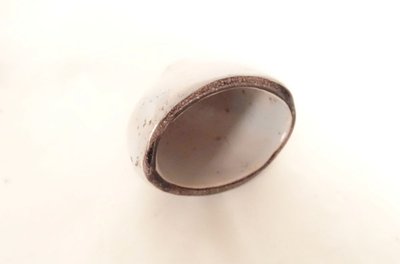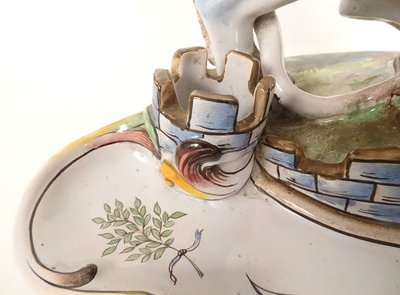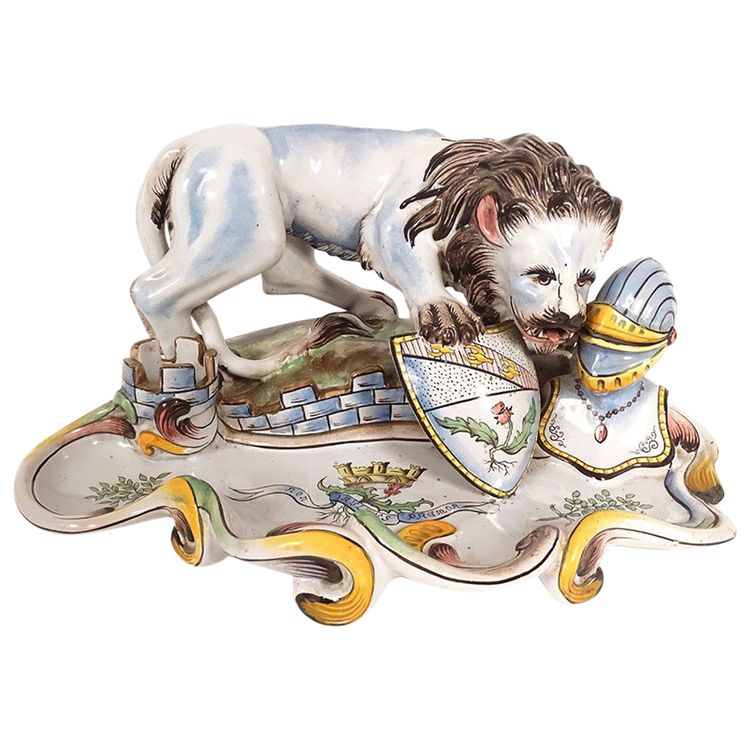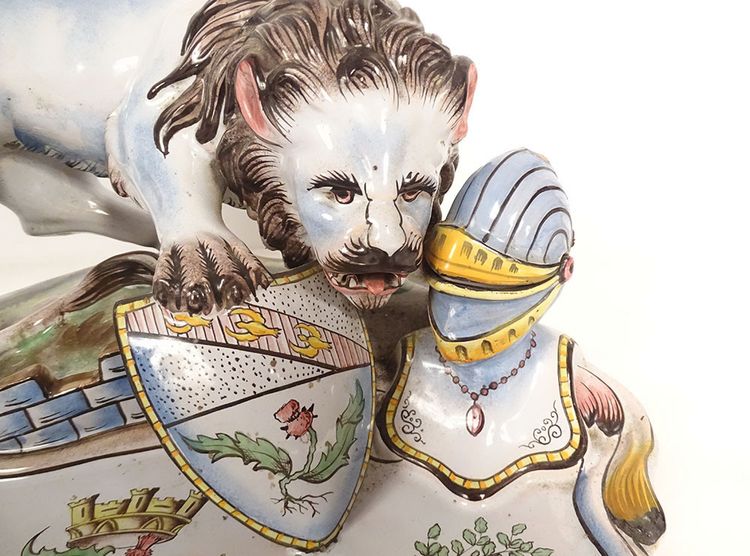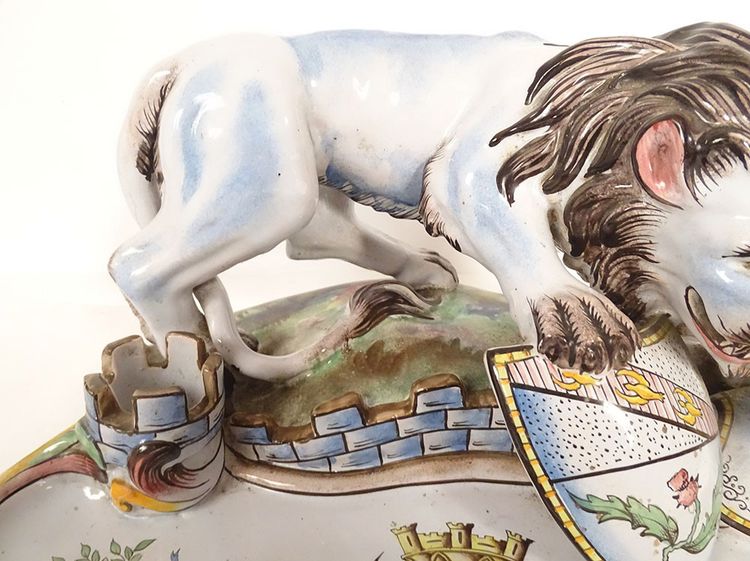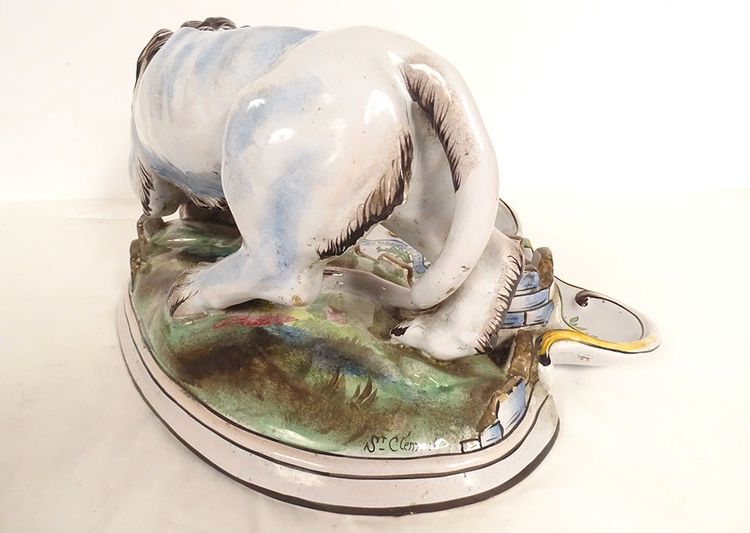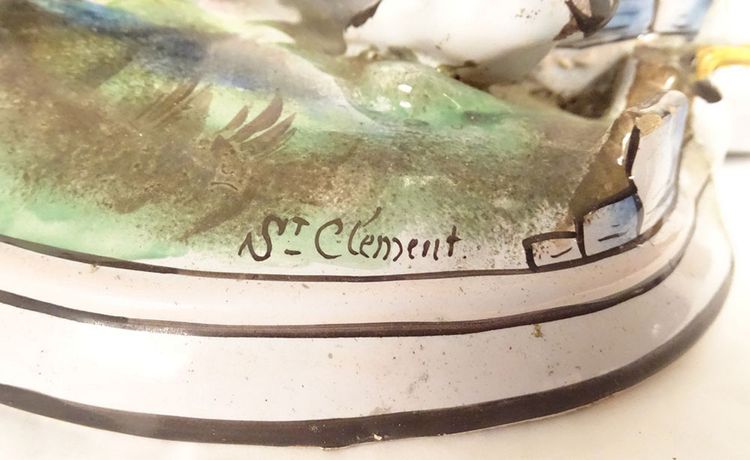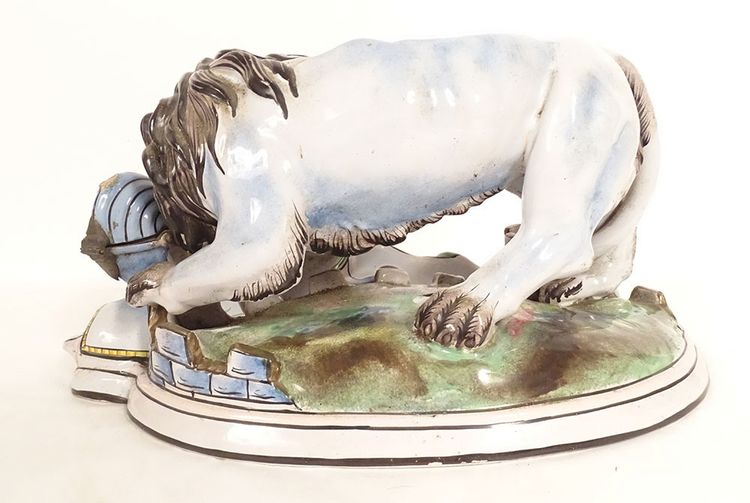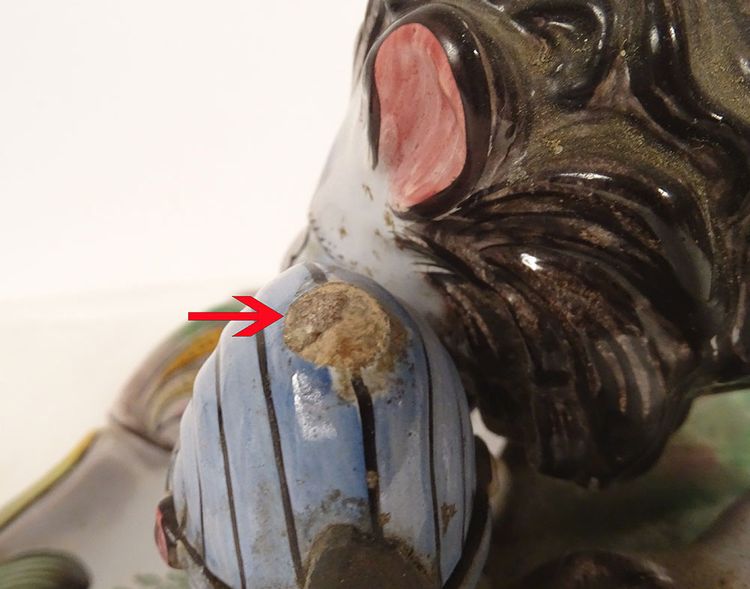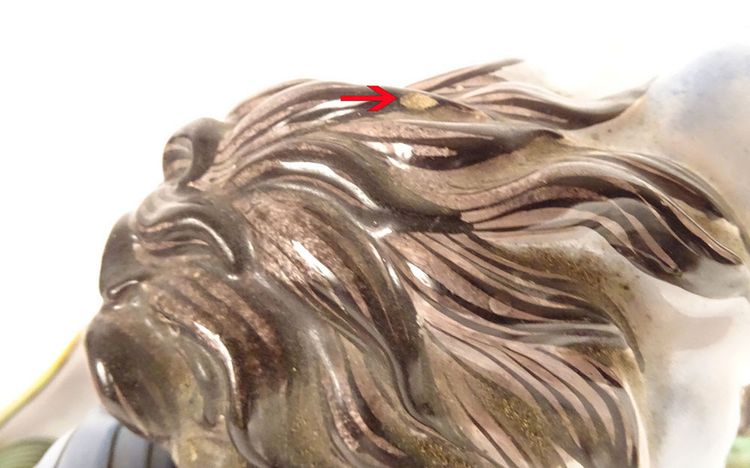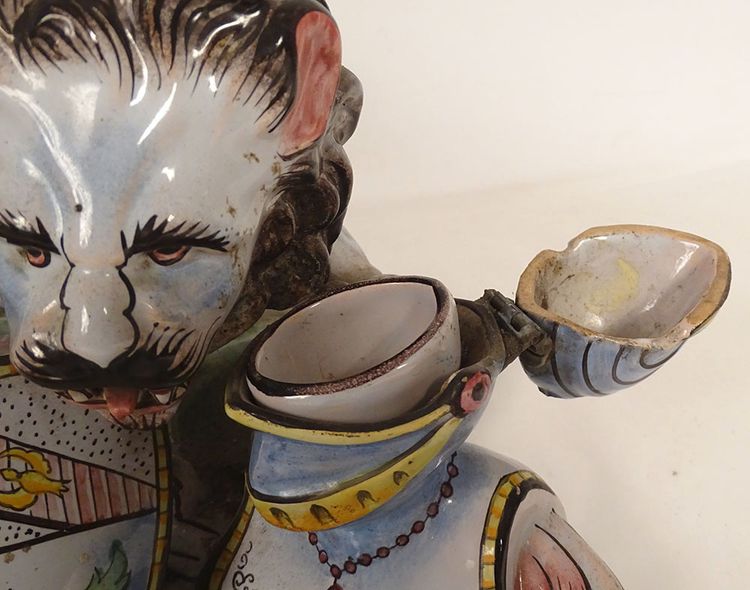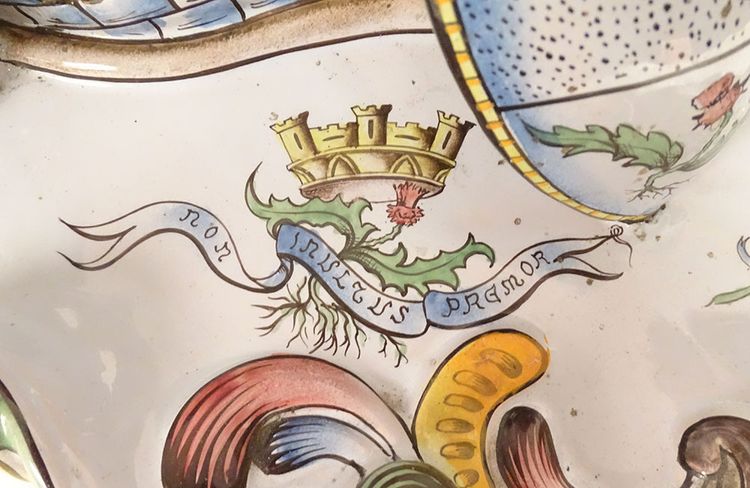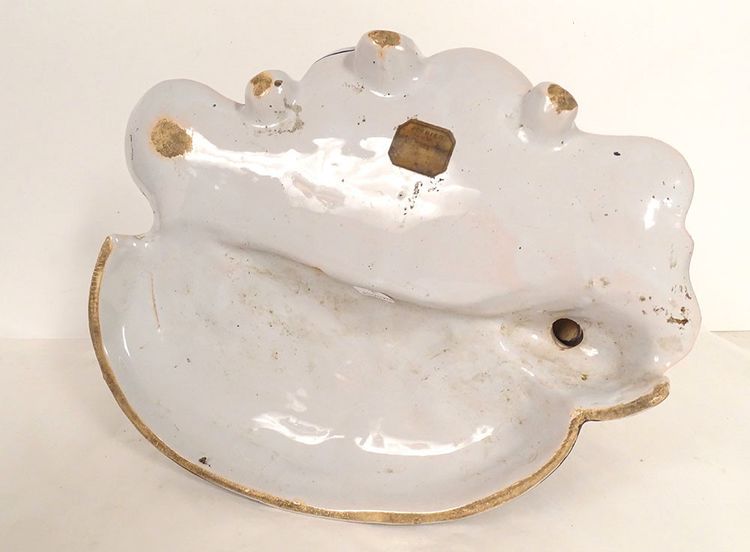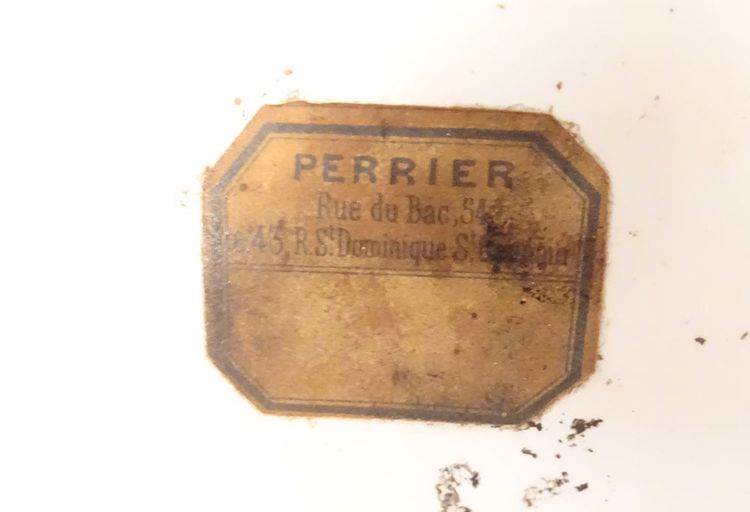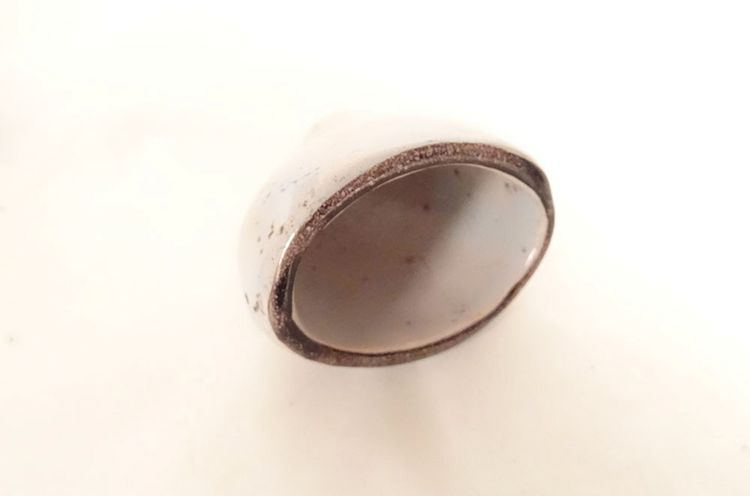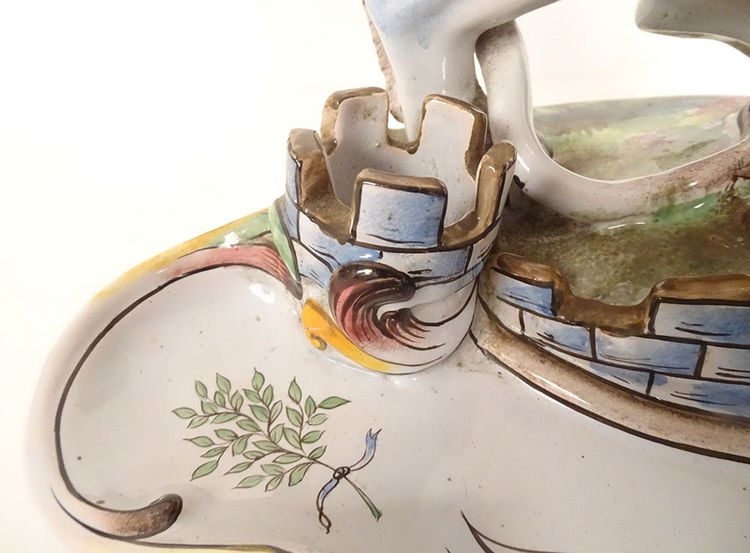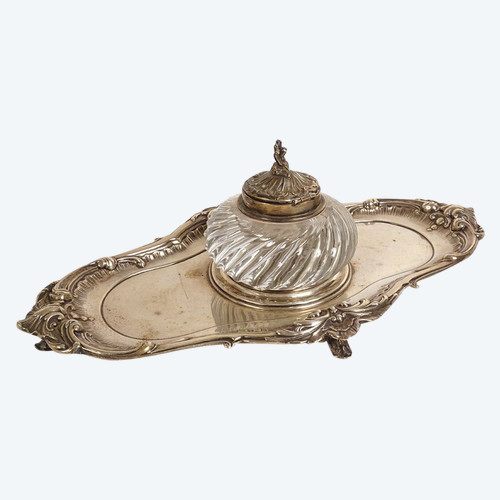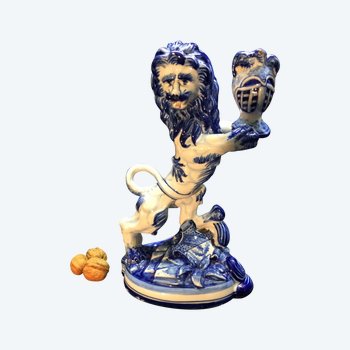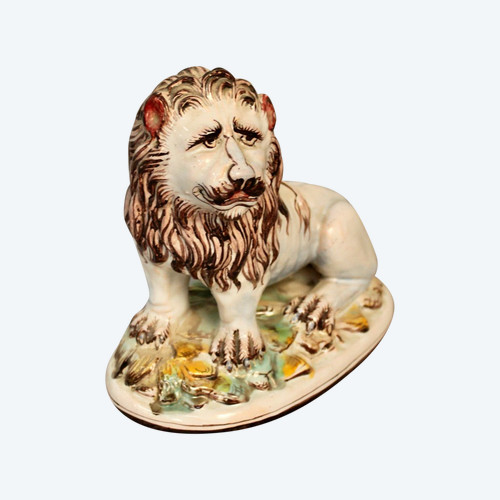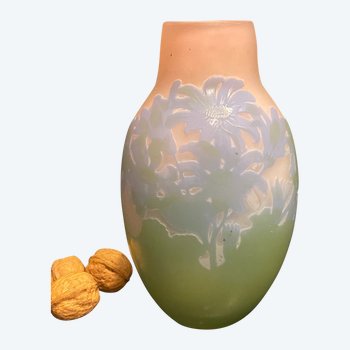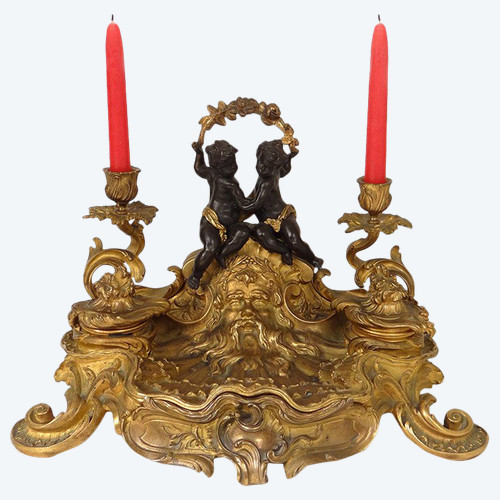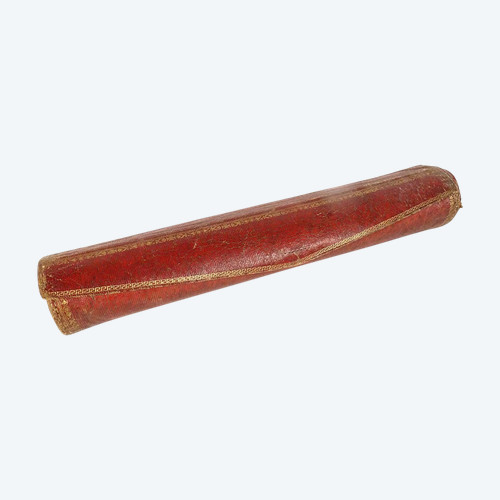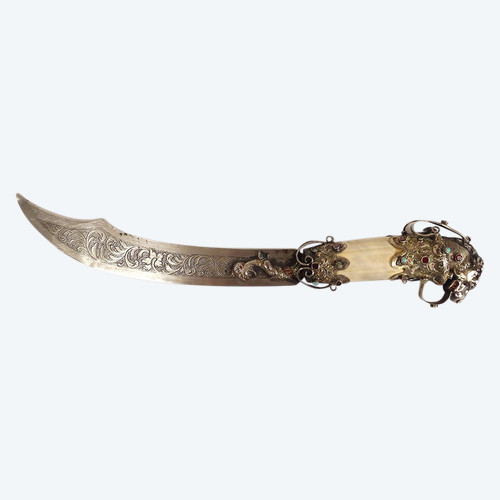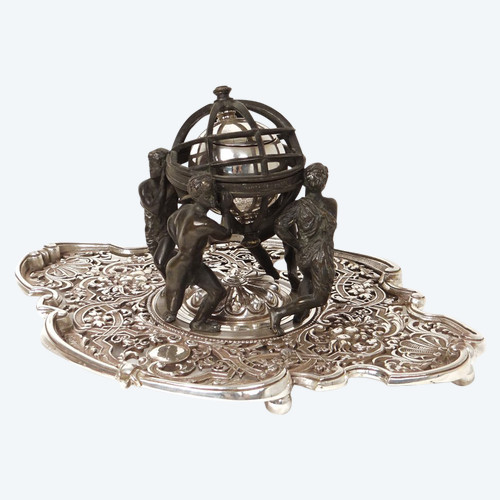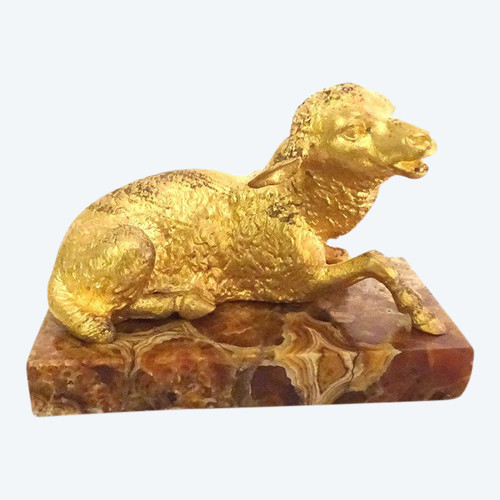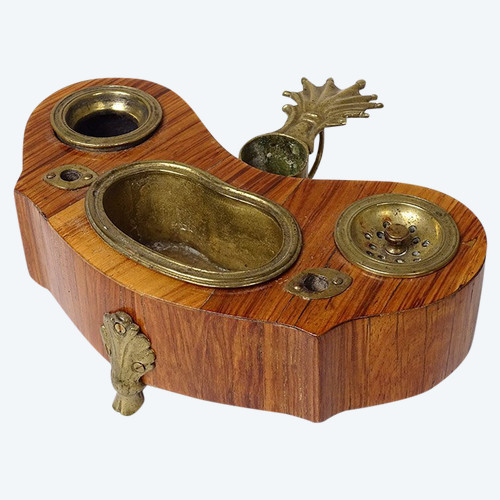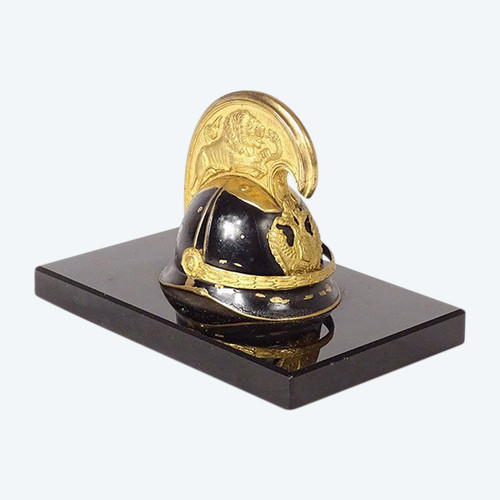This description has been translated and may not be completely accurate. Click here to see the original
Earthenware inkwell from the Manufacture de Saint-Clément by Emille Gallé*, heraldic lion model, decorated with a lion surmounting a shield with the coat of arms of the city of Nancy (city motto "Non inultus premor") and a knight's helmet forming an inkwell; on the other side a crenelated tower, Perrier Rue du Bac label, Art Nouveau period, late 19th century.
This inkwell is in good condition, superb quality. Very decorative. Signed St Clément on the side. Perrier label on the bottom: CLAIN & PERRIER (1879-1914) Two Parisian associates who owned a shop-workshop at 238 boulevard St Germain and rue du Bac.
Please note: the feather forming the grip at the top of the helmet is missing, small enamel skip on the lion's mane, some age-related wear and scratches, see photos.
* Emile Gallé (Nancy, 1846-1904)
was a famous French glassmaker, ceramist and cabinetmaker. Emile Gallé was born in 1846 in Nancy, where he spent his childhood. He studied at the Lycée Impérial in Nancy from 1858 to 1864, then in Weimar from 1865 to 1867. After graduation, he worked in the ceramics and crystal business of his father, Charles Gallé (1818-1902). Trained as a porcelain painter, he was a porcelain and crystal merchant, supplying His Majesty Emperor Napoleon III. He inherited his mother-in-law's store, where he sold ceramics
ceramics manufactured under subcontract by the Saint-Clément factory until 1876.
In 1873, the Gallé family moved to Avenue de la Garenne in Nancy. Emile Gallé benefits from a ceramics decoration workshop and begins research into glass. Emile Gallé took over his father's business in 1877, gradually moving away from the classical style of his father's ceramics. The artist also developed a passion for botany, and from 1885 onwards was strongly inspired by nature. Following the success of his glassworks, Emile Gallé decided to open a cabinet-making workshop in Nancy in 1885. His first works were exhibited at the 1889 Universal Exhibition, and the workshop expanded considerably. In 1901, he founded the Ecole de Nancy, a provincial alliance of art industries, which brought together artists and industrialists from Lorraine to work together and defend their interests in the face of competition. He thus became the main driving force behind the Art Nouveau style, characterized by the use of sinuous lines, curves and organic forms in architecture and the decorative arts. (Cf Musée Gallé website).
Dimensions
Height 16.5 cm
Width max 35 cm
Depth 27 cm
Reference : 500 885
All photos on :
www.antiques-delaval.com
Ref: GQTURHE91M
 Large Italian abbey table in walnut
7.500 € EUR
Large Italian abbey table in walnut
7.500 € EUR
 Yellow Gold, Amethyst And Enamel Brooch
2.190 € EUR
Yellow Gold, Amethyst And Enamel Brooch
2.190 € EUR

